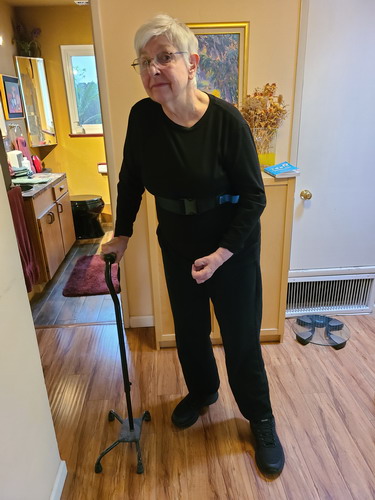 Life is constantly challenging us. The more connected we become in the world the more we are confronted with a world full of stuff we don’t like. The world simply does not conduct its business in ways that make sense to us. We might nod and say we understand that selfishness, greed, and corruption drive most of the events we witness happening today, but we don’t really accept that. It feels wrong on some level. The world feels broken on some fundamental level and we just don’t know what to do about it.
Life is constantly challenging us. The more connected we become in the world the more we are confronted with a world full of stuff we don’t like. The world simply does not conduct its business in ways that make sense to us. We might nod and say we understand that selfishness, greed, and corruption drive most of the events we witness happening today, but we don’t really accept that. It feels wrong on some level. The world feels broken on some fundamental level and we just don’t know what to do about it.
 The crazy thing is the folks who are acting in ways we find unacceptable feel the same way about the world as we do. It is just that their ideas about how to fix things are very different from ours. What they focus on as being wrong are different parts of the problem than what we are focusing on. To us they are part of the problem, just as to them we are part of the problem. We all see things from different perspectives and therefore want different outcomes.
The crazy thing is the folks who are acting in ways we find unacceptable feel the same way about the world as we do. It is just that their ideas about how to fix things are very different from ours. What they focus on as being wrong are different parts of the problem than what we are focusing on. To us they are part of the problem, just as to them we are part of the problem. We all see things from different perspectives and therefore want different outcomes.
 This same problem exists in our own small personal world as well. The people in our lives don’t see things the way we do. Even when they agree with us on identifying a particular problem or concern, their relationship to it is different from ours. Consequently, they will feel differently from us as to what should be done and just who should do it. This starts getting very personal when they see us as the problem or we see them as the problem. Emotional bullets can start to fly as judgments and accusations get tossed around. Arguments happen. Our feelings can get very hurt. We might become scared, defensive, or overtly angry in response. Blame can get spread around like peanut butter on bread. The whole scene does not feel good and both sides end up feeling separate and alone. What can be done to prevent this outcome? How do we avoid falling into these traps with other people?
This same problem exists in our own small personal world as well. The people in our lives don’t see things the way we do. Even when they agree with us on identifying a particular problem or concern, their relationship to it is different from ours. Consequently, they will feel differently from us as to what should be done and just who should do it. This starts getting very personal when they see us as the problem or we see them as the problem. Emotional bullets can start to fly as judgments and accusations get tossed around. Arguments happen. Our feelings can get very hurt. We might become scared, defensive, or overtly angry in response. Blame can get spread around like peanut butter on bread. The whole scene does not feel good and both sides end up feeling separate and alone. What can be done to prevent this outcome? How do we avoid falling into these traps with other people?
 Today I would like to suggest a tool; a way of viewing things that resolves these situations most of the time. I want to say that it is very simple, but I know from personal experience it is not. The idea is simple. Applying it is a little more challenging. The challenge comes from changing a fundamental perception we have about ourselves. That perception is that we are seen. We are the center of our own personal world. We know what we think and feel most of the time and we have a basement full of old feelings and beliefs just underneath what we think and feel at this moment.
Today I would like to suggest a tool; a way of viewing things that resolves these situations most of the time. I want to say that it is very simple, but I know from personal experience it is not. The idea is simple. Applying it is a little more challenging. The challenge comes from changing a fundamental perception we have about ourselves. That perception is that we are seen. We are the center of our own personal world. We know what we think and feel most of the time and we have a basement full of old feelings and beliefs just underneath what we think and feel at this moment.  Somehow we believe that anyone talking to us will somehow know what is in our basement and respect it. We may abstractly know that they can’t possibly know all that stuff in our basement (our subconscious), but we believe they should. They should know that we are a good person and have good reasons for what we express and what we think and feel. Our identity is made out of this basement stuff. This is where the opportunity for a perspective change can get us out of the bad feeling places I described earlier. When you accept that nobody really knows you, the real you down in your basement where your real feelings live, then you can grasp that any judgment thrown at you by others is not really about you. You don’t have to take things other people say personally. They might be upset at their interpretation of what something you said or did might mean. But the truth is they have no idea what you meant or why you expressed what you did.
Somehow we believe that anyone talking to us will somehow know what is in our basement and respect it. We may abstractly know that they can’t possibly know all that stuff in our basement (our subconscious), but we believe they should. They should know that we are a good person and have good reasons for what we express and what we think and feel. Our identity is made out of this basement stuff. This is where the opportunity for a perspective change can get us out of the bad feeling places I described earlier. When you accept that nobody really knows you, the real you down in your basement where your real feelings live, then you can grasp that any judgment thrown at you by others is not really about you. You don’t have to take things other people say personally. They might be upset at their interpretation of what something you said or did might mean. But the truth is they have no idea what you meant or why you expressed what you did.
 When you believe that others actually know the real you then you are stuck like a fly to flypaper when they judge you. You are trapped in your foxhole trying to keep low enough to avoid the bullets. When you shift from the personal to the impersonal perspective, you are free. Extending this to realizing you don’t really know anybody any more than they really know you also frees you from bothering to make judgments about them. All you really know is whether you like what they have said or done based on what it means to you. This is appropriate self-knowledge. It tells you about what you would have to feel and think to put that expression out there. It does not really tell you much of anything about them. We love to make assumptions about who they must be on the inside based on who we would have to be to express the way they did, but truthfully we have no idea. The same applies in the reverse. They don’t know what we really think and feel on the inside. They don’t know us.
When you believe that others actually know the real you then you are stuck like a fly to flypaper when they judge you. You are trapped in your foxhole trying to keep low enough to avoid the bullets. When you shift from the personal to the impersonal perspective, you are free. Extending this to realizing you don’t really know anybody any more than they really know you also frees you from bothering to make judgments about them. All you really know is whether you like what they have said or done based on what it means to you. This is appropriate self-knowledge. It tells you about what you would have to feel and think to put that expression out there. It does not really tell you much of anything about them. We love to make assumptions about who they must be on the inside based on who we would have to be to express the way they did, but truthfully we have no idea. The same applies in the reverse. They don’t know what we really think and feel on the inside. They don’t know us.
Communicating what we feel and think is really difficult. Other folks may as well be speaking a different language. Truly, they have different connotations for the words we use as we speak. They literally hear what we say with foreign ears. This can be very frustrating at times. However, when we delve deeply into this frustration we find that it comes from the belief that if they really understood who we were on the inside then they would want to do what we want and want to be our way. That grand prize is denied us when it is clear that others don’t really understand us. We inherently believe that our feelings and beliefs are the right ones. Anyone who does not see things our way must be misguided. They just don’t see the light.
 This narcissism that lives down deep in everybody’s subconscious is a leftover from the first few years of our lives. Back then our brain was not mature enough to even realize that other people had thoughts and feelings of their own. We believed that everything was all about us. We cover up this core to our internal identity with more mature social skills, but it lives on nonetheless. This is the real reason we take things personally. In our core, we believe that of course, it is about us. The problem is that our core is invisible to others. Truth be told, even if it was apparent what our internal truth was, no one would care. Well, that is not entirely true. Those who want to manipulate us like to know what our core motivators are so that they can use this information to twist us to do their bidding. But in an honest relationship, each person is a sovereign nation.
This narcissism that lives down deep in everybody’s subconscious is a leftover from the first few years of our lives. Back then our brain was not mature enough to even realize that other people had thoughts and feelings of their own. We believed that everything was all about us. We cover up this core to our internal identity with more mature social skills, but it lives on nonetheless. This is the real reason we take things personally. In our core, we believe that of course, it is about us. The problem is that our core is invisible to others. Truth be told, even if it was apparent what our internal truth was, no one would care. Well, that is not entirely true. Those who want to manipulate us like to know what our core motivators are so that they can use this information to twist us to do their bidding. But in an honest relationship, each person is a sovereign nation.
 This understanding reveals why we want to be understood. We are seeking agreement so that we can feel safe and supported. We want to hang out with people whose words and actions imply that they see and feel similarly to us. We want agreement on beliefs and values so that we feel confident about anticipating that the actions of others will align with what feels right to us. This type of anticipation is what we call trust. We want others to act in accordance with our agreed-upon beliefs and values. That makes us feel safe. Perhaps this is why people, ourselves included, get so judgmental. The judgments are a form of demand that others act in accordance with the beliefs and values you hold. We are demanding that others make us feel safe.
This understanding reveals why we want to be understood. We are seeking agreement so that we can feel safe and supported. We want to hang out with people whose words and actions imply that they see and feel similarly to us. We want agreement on beliefs and values so that we feel confident about anticipating that the actions of others will align with what feels right to us. This type of anticipation is what we call trust. We want others to act in accordance with our agreed-upon beliefs and values. That makes us feel safe. Perhaps this is why people, ourselves included, get so judgmental. The judgments are a form of demand that others act in accordance with the beliefs and values you hold. We are demanding that others make us feel safe.
 So the need to feel safe; our inner child’s narcissism; the misperception that we can get others to see things our way; the illusion that we are seen, all of these feed into why we take things so personally. We really want to believe that our way is the right way; the best way. I suspect that is true for your own life. It just is not true for anyone else’s life. We each have a different path to follow in this life. While we may all want to feel safe, we each have a different picture of what that looks like. We may all want to be valued, but what we want to be valued for may not match up with what others want. People, including us, all act according to their own personal life stories. No one else can know what your story means and feels like to you. That critical part of you is invisible. That is why nothing anyone thinks about you is really about you. It’s not personal.
So the need to feel safe; our inner child’s narcissism; the misperception that we can get others to see things our way; the illusion that we are seen, all of these feed into why we take things so personally. We really want to believe that our way is the right way; the best way. I suspect that is true for your own life. It just is not true for anyone else’s life. We each have a different path to follow in this life. While we may all want to feel safe, we each have a different picture of what that looks like. We may all want to be valued, but what we want to be valued for may not match up with what others want. People, including us, all act according to their own personal life stories. No one else can know what your story means and feels like to you. That critical part of you is invisible. That is why nothing anyone thinks about you is really about you. It’s not personal.
I remember hearing this perceptual tool many years ago but in a different form. I was told that Whatever anyone thinks of you is none of your business. I spent years trying to figure that one out. This article is about what I have figured out from that line many years ago. It has taken me a long time to shed the illusion that I am significant enough that others are at all concerned about the vast complexity of my life story. I accept that they want me to be their way. They want everybody to be their way. It is not about me. Here is the challenge: Realizing things that seem so personal really aren’t. The concept is simple. Applying it day to day is a little more challenging.
Take care,
David
Ellen 
Ellen has been reading the book I wrote about in the article on chronic pain from two weeks ago titled The Way Out. It has inspired her to gently tackle her fear of falling that has kept her mostly in a wheelchair everyday. I put a stability belt around her waist so I can catch her if she starts to topple, but otherwise she is using a cane to walk up and down our hallway. Using the principles of the book for more than pain, she is gradually unwinding the instability caused by fear from any actual instability that is present.
 Stem cells for arthritis on the horizon
Stem cells for arthritis on the horizon
 Ideal sleep temperature
Ideal sleep temperature
 Cardio fitness reduces 9 different cancers by 40%
Cardio fitness reduces 9 different cancers by 40%

 Life is constantly challenging us. The more connected we become in the world the more we are confronted with a world full of stuff we don’t like. The world simply does not conduct its business in ways that make sense to us. We might nod and say we understand that selfishness, greed, and corruption drive most of the events we witness happening today, but we don’t really accept that. It feels wrong on some level. The world feels broken on some fundamental level and we just don’t know what to do about it.
Life is constantly challenging us. The more connected we become in the world the more we are confronted with a world full of stuff we don’t like. The world simply does not conduct its business in ways that make sense to us. We might nod and say we understand that selfishness, greed, and corruption drive most of the events we witness happening today, but we don’t really accept that. It feels wrong on some level. The world feels broken on some fundamental level and we just don’t know what to do about it. The crazy thing is the folks who are acting in ways we find unacceptable feel the same way about the world as we do. It is just that their ideas about how to fix things are very different from ours. What they focus on as being wrong are different parts of the problem than what we are focusing on. To us they are part of the problem, just as to them we are part of the problem. We all see things from different perspectives and therefore want different outcomes.
The crazy thing is the folks who are acting in ways we find unacceptable feel the same way about the world as we do. It is just that their ideas about how to fix things are very different from ours. What they focus on as being wrong are different parts of the problem than what we are focusing on. To us they are part of the problem, just as to them we are part of the problem. We all see things from different perspectives and therefore want different outcomes. This same problem exists in our own small personal world as well. The people in our lives don’t see things the way we do. Even when they agree with us on identifying a particular problem or concern, their relationship to it is different from ours. Consequently, they will feel differently from us as to what should be done and just who should do it. This starts getting very personal when they see us as the problem or we see them as the problem. Emotional bullets can start to fly as judgments and accusations get tossed around. Arguments happen. Our feelings can get very hurt. We might become scared, defensive, or overtly angry in response. Blame can get spread around like peanut butter on bread. The whole scene does not feel good and both sides end up feeling separate and alone. What can be done to prevent this outcome? How do we avoid falling into these traps with other people?
This same problem exists in our own small personal world as well. The people in our lives don’t see things the way we do. Even when they agree with us on identifying a particular problem or concern, their relationship to it is different from ours. Consequently, they will feel differently from us as to what should be done and just who should do it. This starts getting very personal when they see us as the problem or we see them as the problem. Emotional bullets can start to fly as judgments and accusations get tossed around. Arguments happen. Our feelings can get very hurt. We might become scared, defensive, or overtly angry in response. Blame can get spread around like peanut butter on bread. The whole scene does not feel good and both sides end up feeling separate and alone. What can be done to prevent this outcome? How do we avoid falling into these traps with other people? Today I would like to suggest a tool; a way of viewing things that resolves these situations most of the time. I want to say that it is very simple, but I know from personal experience it is not. The idea is simple. Applying it is a little more challenging. The challenge comes from changing a fundamental perception we have about ourselves. That perception is that we are seen. We are the center of our own personal world. We know what we think and feel most of the time and we have a basement full of old feelings and beliefs just underneath what we think and feel at this moment.
Today I would like to suggest a tool; a way of viewing things that resolves these situations most of the time. I want to say that it is very simple, but I know from personal experience it is not. The idea is simple. Applying it is a little more challenging. The challenge comes from changing a fundamental perception we have about ourselves. That perception is that we are seen. We are the center of our own personal world. We know what we think and feel most of the time and we have a basement full of old feelings and beliefs just underneath what we think and feel at this moment.  Somehow we believe that anyone talking to us will somehow know what is in our basement and respect it. We may abstractly know that they can’t possibly know all that stuff in our basement (our subconscious), but we believe they should. They should know that we are a good person and have good reasons for what we express and what we think and feel. Our identity is made out of this basement stuff. This is where the opportunity for a perspective change can get us out of the bad feeling places I described earlier. When you accept that nobody really knows you, the real you down in your basement where your real feelings live, then you can grasp that any judgment thrown at you by others is not really about you. You don’t have to take things other people say personally. They might be upset at their interpretation of what something you said or did might mean. But the truth is they have no idea what you meant or why you expressed what you did.
Somehow we believe that anyone talking to us will somehow know what is in our basement and respect it. We may abstractly know that they can’t possibly know all that stuff in our basement (our subconscious), but we believe they should. They should know that we are a good person and have good reasons for what we express and what we think and feel. Our identity is made out of this basement stuff. This is where the opportunity for a perspective change can get us out of the bad feeling places I described earlier. When you accept that nobody really knows you, the real you down in your basement where your real feelings live, then you can grasp that any judgment thrown at you by others is not really about you. You don’t have to take things other people say personally. They might be upset at their interpretation of what something you said or did might mean. But the truth is they have no idea what you meant or why you expressed what you did. When you believe that others actually know the real you then you are stuck like a fly to flypaper when they judge you. You are trapped in your foxhole trying to keep low enough to avoid the bullets. When you shift from the personal to the impersonal perspective, you are free. Extending this to realizing you don’t really know anybody any more than they really know you also frees you from bothering to make judgments about them. All you really know is whether you like what they have said or done based on what it means to you. This is appropriate self-knowledge. It tells you about what you would have to feel and think to put that expression out there. It does not really tell you much of anything about them. We love to make assumptions about who they must be on the inside based on who we would have to be to express the way they did, but truthfully we have no idea. The same applies in the reverse. They don’t know what we really think and feel on the inside. They don’t know us.
When you believe that others actually know the real you then you are stuck like a fly to flypaper when they judge you. You are trapped in your foxhole trying to keep low enough to avoid the bullets. When you shift from the personal to the impersonal perspective, you are free. Extending this to realizing you don’t really know anybody any more than they really know you also frees you from bothering to make judgments about them. All you really know is whether you like what they have said or done based on what it means to you. This is appropriate self-knowledge. It tells you about what you would have to feel and think to put that expression out there. It does not really tell you much of anything about them. We love to make assumptions about who they must be on the inside based on who we would have to be to express the way they did, but truthfully we have no idea. The same applies in the reverse. They don’t know what we really think and feel on the inside. They don’t know us.
 This narcissism that lives down deep in everybody’s subconscious is a leftover from the first few years of our lives. Back then our brain was not mature enough to even realize that other people had thoughts and feelings of their own. We believed that everything was all about us. We cover up this core to our internal identity with more mature social skills, but it lives on nonetheless. This is the real reason we take things personally. In our core, we believe that of course, it is about us. The problem is that our core is invisible to others. Truth be told, even if it was apparent what our internal truth was, no one would care. Well, that is not entirely true. Those who want to manipulate us like to know what our core motivators are so that they can use this information to twist us to do their bidding. But in an honest relationship, each person is a sovereign nation.
This narcissism that lives down deep in everybody’s subconscious is a leftover from the first few years of our lives. Back then our brain was not mature enough to even realize that other people had thoughts and feelings of their own. We believed that everything was all about us. We cover up this core to our internal identity with more mature social skills, but it lives on nonetheless. This is the real reason we take things personally. In our core, we believe that of course, it is about us. The problem is that our core is invisible to others. Truth be told, even if it was apparent what our internal truth was, no one would care. Well, that is not entirely true. Those who want to manipulate us like to know what our core motivators are so that they can use this information to twist us to do their bidding. But in an honest relationship, each person is a sovereign nation. This understanding reveals why we want to be understood. We are seeking agreement so that we can feel safe and supported. We want to hang out with people whose words and actions imply that they see and feel similarly to us. We want agreement on beliefs and values so that we feel confident about anticipating that the actions of others will align with what feels right to us. This type of anticipation is what we call trust. We want others to act in accordance with our agreed-upon beliefs and values. That makes us feel safe. Perhaps this is why people, ourselves included, get so judgmental. The judgments are a form of demand that others act in accordance with the beliefs and values you hold. We are demanding that others make us feel safe.
This understanding reveals why we want to be understood. We are seeking agreement so that we can feel safe and supported. We want to hang out with people whose words and actions imply that they see and feel similarly to us. We want agreement on beliefs and values so that we feel confident about anticipating that the actions of others will align with what feels right to us. This type of anticipation is what we call trust. We want others to act in accordance with our agreed-upon beliefs and values. That makes us feel safe. Perhaps this is why people, ourselves included, get so judgmental. The judgments are a form of demand that others act in accordance with the beliefs and values you hold. We are demanding that others make us feel safe. So the need to feel safe; our inner child’s narcissism; the misperception that we can get others to see things our way; the illusion that we are seen, all of these feed into why we take things so personally. We really want to believe that our way is the right way; the best way. I suspect that is true for your own life. It just is not true for anyone else’s life. We each have a different path to follow in this life. While we may all want to feel safe, we each have a different picture of what that looks like. We may all want to be valued, but what we want to be valued for may not match up with what others want. People, including us, all act according to their own personal life stories. No one else can know what your story means and feels like to you. That critical part of you is invisible. That is why nothing anyone thinks about you is really about you. It’s not personal.
So the need to feel safe; our inner child’s narcissism; the misperception that we can get others to see things our way; the illusion that we are seen, all of these feed into why we take things so personally. We really want to believe that our way is the right way; the best way. I suspect that is true for your own life. It just is not true for anyone else’s life. We each have a different path to follow in this life. While we may all want to feel safe, we each have a different picture of what that looks like. We may all want to be valued, but what we want to be valued for may not match up with what others want. People, including us, all act according to their own personal life stories. No one else can know what your story means and feels like to you. That critical part of you is invisible. That is why nothing anyone thinks about you is really about you. It’s not personal.
